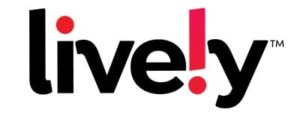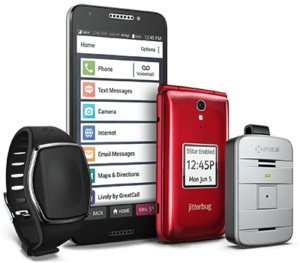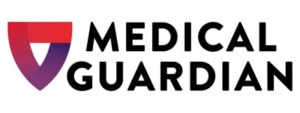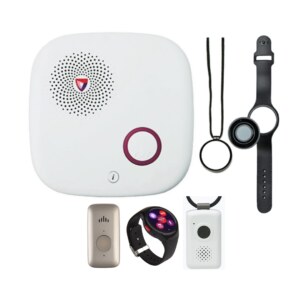GreatCall Lively vs. Medical Guardian: How to Choose
AgingInPlace.org keeps our resources free by working as an affiliate partner with some companies mentioned on our site. These partnerships or the commission we may earn do not affect our opinions or evaluations of the products we mention. Our reviews are solely based on our research methodology and from input from our AgingInPlace.org Advisory Board. Learn more about our ad policies.
GreatCall Lively vs. Medical Guardian: How t...
Products carousel
Key Takeaways
- GreatCall Lively and Medical Guardian are both established companies offering medical alert systems that use a wearable help button to alert a 24/7 response center in case of an emergency.
- Both companies have up-front fees. GreatCall Lively has an equipment fee for both devices plus an activation fee, and Medical Guardian has an equipment fee for four out of its five systems.
- Automatic fall detection is available on four of the five Medical Guardian devices and both of the Lively devices with the Ultimate Package plan.
- MedicalGuardian has landline and cellular-based devices. GreatCall Lively only offers cellular-based plans.
If you’re looking for a medical alert system for yourself or a loved one, you might have questions about how to go about choosing the one that’s right for you, especially since so many companies offer this service.
Although finding the best medical alert system to meet your needs may feel overwhelming, narrowing down your choices with a side-by-side comparison can help. Here, we’ve done that by looking at the pros, cons, costs, and features of Lively (formerly GreatCall) vs. Medical Guardian.

Lively vs. Medical Guardian Comparison
| Costs and Features | Lively | Medical Guardian |
|---|---|---|
| Equipment fee | $49.99 per device | |
| Monthly monitoring fee | $24.99–$39.99 | $29.95–$49.95 |
| Activation fee | $35 | No |
| Contract | No | No |
| Automatic fall detection | Included with Ultimate package | $10 per month |
| Connection | Cellular | Cellular and landline |
| GPS location tracking | Yes | Yes, mobile devices |
| Water resistance | Yes | Yes |
| Wall-mounted buttons | No | Yes, extra monthly fee |
| Costs and Features | ||||||||||||||||||||||||||||||||||||||||||||||||||||||||||||||||||||||||||||||||||||||||||||||||||||||||||||||||||||||||||||||||||||||||||||||||||||||||||||||||||||||||||||||||||||||||||||||||||||||||||||||||||||||||||||||||||||||
| Equipment fee | Lively | $49.99 per device | Medical Guardian |
|---|
| Monthly monitoring fee | Lively | $24.99–$39.99 | Medical Guardian | $29.95–$49.95 |
|---|
| Activation fee | Lively | $35 | Medical Guardian | No |
|---|
| Contract | Lively | No | Medical Guardian | No |
|---|
| Automatic fall detection | Lively | Included with Ultimate package | Medical Guardian | $10 per month |
|---|
| Connection | Lively | Cellular | Medical Guardian | Cellular and landline |
|---|
| GPS location tracking | Lively | Yes | Medical Guardian | Yes, mobile devices |
|---|
| Water resistance | Lively | Yes | Medical Guardian | Yes |
|---|
| Wall-mounted buttons | Lively | No | Medical Guardian | Yes, extra monthly fee |
|---|
Lively Overview
Lively offers the Lively Mobile+ and Lively Wearable2 medical alert devices and older adult-friendly cell phones. Both alert devices connect to the Lively Response Team through Verizon’s wireless cellular service, eliminating any need for a landline. Here are more details about each device and plan.
Lively Mobile+: The Lively Mobile+ is a comprehensive medical alert device you can wear at home and on the go. It does not require a base station, so you can take it anywhere. Plus, it has two-way communication, so you can talk to the operator through the device. It also has enhanced GPS location tracking, making it ideal for mobile devices. Because it’s all-in-one, you don’t have to change out the help button when you leave home or worry about having more than one wearable device. The help button is larger than other wearable devices, so it might not be the best device if you want a discreet help button. However, you can clip it on your belt if it’s too bulky or noticeable when wearing it around your neck. You can purchase the Lively Mobile+ device online or at Walgreens. If you buy it at Walgreens, you will need to go to the Lively site to activate the device.
Lively Wearable2: This medical alert device gives you access to health and safety services through the app on your smartphone. All you need to do is press the button on the device, and your smartphone will automatically contact Urgent Response. This connects you with a response agent who will confirm your location and determine the type of response you need. You can wear the Lively Wearable2 on your wrist like a watch or the lanyard like a necklace. In addition to safety features, the Wearable2 also tracks your steps and provides you with daily health tips.
Cell phone plans: Lively also has two cell phones (Jitterbug 2 and Jitterbug 3) that can access the Lively Response Team if you add one of the monthly Health and Safety packages. In addition, Apple Watch users can now access the Lively Response Team and Lively Health and Safety services through the Lively app. All you need to do is choose a monthly package, sign up, and start using the app with your iPhone and Apple Watch.
There are three options for the monthly Health and Safety package for monitoring services: the Basic Package, the Preferred Package, and the Ultimate Package. Each package comes with access to Urgent Response, the 24/7 monitoring center you call in an emergency. The other two packages also have Urgent Care, which gives you 24/7 telephone access to a doctor or nurse from the comfort of your home, and the Lively Link app that alerts loved ones when you contact Urgent Response.
- Basic Package: Urgent Response
- Preferred Package: Urgent Response, Urgent Care, and Lively Link app
- Ultimate Package: Urgent Response, Urgent Care, Lively Link, and fall detection (only package with fall detection)
Pros
-
30-day money-back guarantee
-
AARP member discount on select programs
-
Affordable basic package
-
No long-term contracts
-
Some packages have 24/7 access to medical care
-
Smartphone can double as a medical alert device
-
Lively Response Team and Lively Health and Safety services available on Apple Watch and iPhone
Cons
-
No landline-based systems with in-home base station (a problem if you have poor cell service in your area)
-
$35 activation fee for all plans
-
Fall detection only available with most expensive monthly package
-
No prepaid discounts on monthly plans
Medical Guardian Overview
Medical Guardian offers medical alert systems at home and on the go, including three mobile devices, one in-home system, and one system that provides coverage at home and on the go.
Classic Guardian: This is a great choice for older adults who spend most of their time at home and want to use a landline for the base station. It has a great in-home range of 1,300 feet and up to 32 hours of backup battery power.
Home 2.0: If you don’t have a landline and want to use a high-speed connection through Wi-Fi and LTE, you can use this system. Home 2.0 has a 1,400-foot in-home range, ideal for older adults with a large living space. It also has up to 32 hours of backup battery power.
Mobile 2.0: If you need a medical alert system you can take anywhere, Mobile 2.0 is worth considering. This cellular-based system with GPS comes with a wearable neck or wrist button that provides coverage at home and on the go. You can also clip the device to your clothing or a purse or bag. The battery can last three to five days on one charge.
Mini Guardian: Some people may find the Mobile 2.0 wearable device too big and bulky and want something more lightweight and discreet. The Mini Guardian is a small, cellular-based and GPS-enabled device you can carry in a bag, wear around your neck, or clip to a belt. It can go five days before needing a charge, making it ideal for older adults who don’t want the hassle of a battery that needs constant charging.
MGMove: This smartwatch device features an emergency help button, step tracking, weather data, heart rate monitoring, voice-to-text messaging, and more. The MGMove does not have fall detection, so it’s not a good choice for older adults needing that protection.
All systems come with the MyGuardian portal and app, and you can add OnGuard alerts, lockboxes, and the MG Protection plan to any device. In addition, wall-mounted help buttons and extra neck or wrist buttons are available with the Classic Guardian and Home 2.0 system.
Pros
-
Long signal range from the base unit for in-home units
-
Offers landline and cellular-based systems
-
Five plans and devices
-
Some plans have an all-in-one pendant to avid multiple devices
-
No long-term contracts
-
Free caregiver portal
-
No activation fees
-
TMA Five Diamond certified monitoring centers
Cons
-
Overall monthly and startup costs can be higher than other systems
-
Four of the five plans and devices require an initial equipment fee
-
No money-back guarantee
-
Fall detection is $10 extra per month
Does Lively Cost More Than Medical Guardian?

No, Lively does not cost more than Medical Guardian. In fact, the monthly monitoring costs for the Lively basic package are $5 less than the entry system for Medical Guardian. The remaining two packages are similar to the monthly fees charged by Medical Guardian. What’s more, the equipment fee for Lively is cheaper than Medical Guardian’s equipment fees, except the Classic Guardian, which does not have an equipment fee. Here is a breakdown of each company’s monthly costs.
Medical Guardian Pricing
- Classic Guardian: $29.95 per month + $10 per month for fall detection
- Home 2.0: $34.95 per month + $124.95 equipment fee + $10 per month for fall detection
- Mobile 2.0: $39.95 per month + $124.95 equipment fee + $10 per month for fall detection
- Mini Guardian: $39.95 per month + $124.95 equipment fee + $10 per month for fall detection
- MGMove Smartwatch: $39.95 per month + $199.95 equipment fee (not equipped with fall detection)
Lively Pricing
- Basic Package: $24.99 per month + $49.99 equipment fee + $35 activation fee
- Preferred Package: $29.99 per month + $49.99 equipment fee + $35 activation fee
- Ultimate Package: $39.99 per month + $49.99 equipment fee + $35 activation fee (only package with fall detection)
If you’re an AARP member, ask about the exclusive discount. Members can save $60 each year on select Lively Health and Safety packages.
Which Is Better: Lively or Medical Guardian?
Determining which system is better depends on your budget, features, and where you plan to use the system. Ultimately, the best medical alert systems have a device you will wear regularly and feel comfortable using.
While both companies provide medical alert monitoring services, we feel that Medical Guardian offers users more variety, a better choice of wearable devices, and more comprehensive plans with add-ons like wall-mounted help buttons and lockboxes. That being said, Lively is worth considering if you want a mobile, cellular-based plan that allows you to use your smartphone as part of a medical alert system. However, since mobile devices need frequent charging and rely on a strong cellular connection, if the cell service in your area is spotty, a Lively device might not be the best choice for you.
Another reason we like Medical Guardian is that it has several add-ons and premium features—like lockboxes, wall buttons, and pendant jewelry—allowing you to customize your medical alert device and system. Lively devices do not have add-ons, but the three-tiered package plan gives you the freedom to choose the services you need.
The bottom line is: If you’re shopping for a medical alert system for yourself or a loved one, Lively and Medical Guardian are both reputable companies with quality medical alert devices. Overall, we feel that Medical Guardian comes out ahead, but again, it comes down to your budget, how comfortable you are wearing and using the device, and the features you need in a medical alert system.
Comparing Other Medical Alert Systems We Recommend
Medical Guardian and Lively are only two medical alert systems on the market. There are at least a dozen other reputable companies and systems. In addition to Medical Guardian and Lively, here are four different companies that we recommend.
| Costs and Features | Medical Guardian | Lively | MobileHelp | Bay Alarm Medical | LifeFone | Medical Alert |
|---|---|---|---|---|---|---|
| Monthly monitoring fee | $29.95–$49.95 | $24.99–$39.99 | $19.95–$44.95 | $19.95–$39.95 | $24.95–$39.95 | $19.95–$42.95 |
| Activation fee | No | $35 | No | No | No | No |
| Long-term Contract | No | No | No | No | No | No |
| Automatic fall detection | $10 per month | Included with ultimate package | $10 per month | $10 per month | $5 per month | $10 per month |
| Equipment fee | $124.95 for some systems | $49.99 | No | No | No | No |
| Connection | Landline and cellular | Cellular | Landline and cellular | Landline and cellular | Landline and cellular | Landline and cellular |
| Battery life | 5 days | Varies | 3 days | Varies | Varies | 5 days |
| In-home range | 1,300 fee | NA | 1,400 feet | 1,000 feet | 1,300 feet | 800 feet |
| Costs and Features | ||||||||||||||||||||||||||||||||||||||||||||||||||||||||||||||||||||||||||||||||||||||||||||||||||||||||||||||||
| Monthly monitoring fee | Medical Guardian | $29.95–$49.95 | Lively | $24.99–$39.99 | MobileHelp | $19.95–$44.95 | Bay Alarm Medical | $19.95–$39.95 | LifeFone | $24.95–$39.95 | Medical Alert | $19.95–$42.95 |
|---|
| Activation fee | Medical Guardian | No | Lively | $35 | MobileHelp | No | Bay Alarm Medical | No | LifeFone | No | Medical Alert | No |
|---|
| Long-term Contract | Medical Guardian | No | Lively | No | MobileHelp | No | Bay Alarm Medical | No | LifeFone | No | Medical Alert | No |
|---|
| Automatic fall detection | Medical Guardian | $10 per month | Lively | Included with ultimate package | MobileHelp | $10 per month | Bay Alarm Medical | $10 per month | LifeFone | $5 per month | Medical Alert | $10 per month |
|---|
| Equipment fee | Medical Guardian | $124.95 for some systems | Lively | $49.99 | MobileHelp | No | Bay Alarm Medical | No | LifeFone | No | Medical Alert | No |
|---|
| Connection | Medical Guardian | Landline and cellular | Lively | Cellular | MobileHelp | Landline and cellular | Bay Alarm Medical | Landline and cellular | LifeFone | Landline and cellular | Medical Alert | Landline and cellular |
|---|
| Battery life | Medical Guardian | 5 days | Lively | Varies | MobileHelp | 3 days | Bay Alarm Medical | Varies | LifeFone | Varies | Medical Alert | 5 days |
|---|
| In-home range | Medical Guardian | 1,300 fee | Lively | NA | MobileHelp | 1,400 feet | Bay Alarm Medical | 1,000 feet | LifeFone | 1,300 feet | Medical Alert | 800 feet |
|---|
Why You Can Trust Us
You deserve the best products for a better quality of life. As such, we strive to create honest, helpful reviews. Our experts independently research and recommend products we believe provide value in the lives of our readers.
We’ve spent collectively more than 1,700 hours conducting in-depth research on medical alert systems. Our content is medically reviewed and unbiased to help you choose the right medical alert system for you or your loved one.
We did the following when researching Lively and Medical Guardian medical alert systems:
- Engaged in ongoing independent research
- Consulted with geriatricians and adult caregivers
- Tested various medical alert systems
- Mystery shopped the brands
- Surveyed medical alert system users
- Interviewed experts in the field
- Read verified customer reviews from trusted third parties such as Better Business Bureau and Consumer Reports
What Is a Medical Alert System?
A medical alert system is a safety tool that allows you to connect to a staffed monitoring center, emergency services, or designated caretaker by pressing a button on the wearable device during an emergency. This button activates the medical alert system, which puts you in touch with a call center dispatcher who can assess the situation and call emergency services or contact a loved one to help. The wearable device can be a wrist button, necklace-style lanyard, or smartwatch equipped with a help button.

Depending on the system and plan, medical alert devices provide coverage while the user is at home, on the go, or both. Several medical alert systems also come with fall detection. This safety feature uses motion sensors to detect a fall and calls for help without the user having to push the help button.
Frequently Asked Questions
-
All of the Medical Guardian cellular and mobile medical alert systems connect to the company’s monitoring centers through the AT&T wireless network at no extra cost. Therefore, you do not need to have a separate cellular plan.
-
All of Medical Guardian’s mobile systems have GPS location tracking. This includes the Mobile 2.0, Mini Guardian, and MGMove Smartwatch. GPS location tracking allows a dispatcher at the call center to pinpoint your location, even if you cannot communicate it to them yourself. It also enables family members or caregivers to track your location when you’re on the go.
-
Both the in-home and mobile systems come with water-resistant help buttons. This means you can wear the help button in the shower or while bathing. Because they are water-resistant and not waterproof, they should not be submerged in water for long periods. Make sure to read the user manual that comes with your medical alert system.
-
Like any medical alert system, Medical Guardian has both benefits and drawbacks. Here are some pros and cons to consider.
Pros:
- Generous in-home coverage range
- Several premium features are available
- TMA Five Diamond Certification
- Extended battery life
Cons:
- Prices higher than other medical alert systems
- Three of the four mobile systems have equipment fees
- $10 additional monthly charge for automatic fall detection
-
The monthly fee for Medical Guardian ranges from $29.95 to $39.95. This covers the 24/7 monitoring center services, but it does not factor in any add-on fees for automatic fall detection, wall buttons, lockbox, or a protection plan. These extras range in price from $2.99–$10 per month.
-
When deciding on a medical alert system, it’s helpful to look at the similarities and differences between the two companies. Here are some key similarities and differences between Medical Guardian and Lively.
Similarities:
- Monitored medical alert systems with base units that connect to a call center in case of an emergency
- No long-term contracts
- In-home and mobile medical alert systems are available
- Monthly fee required for monitoring center services
- Help buttons are water-resistant
- The monitoring centers are 24/7 and U.S.-based
- Automatic fall detection is available with both plans
Differences:
- Lively has a 30-day return policy. Medical Guardian does not have a money-back guarantee.
- Lively has a standard limited warranty for one year after purchase. Medical Guardian does not have a warranty but does offer a protection plan for a monthly fee.
- Lively has an activation fee. Medical Guardian does not require an activation fee.
Pricing accurate as of April 4, 2022.
Do you want to cite this page? Use our ready-made cite template.



